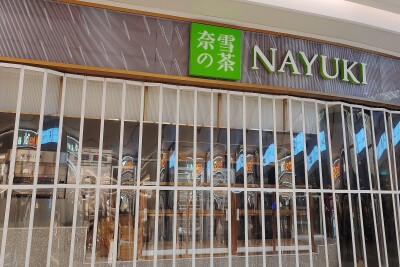Remarkable move to remove ‘Japanese-style label’ by Chinese companies, reflecting rising popularity of home-grown brands

Many Chinese companies have attracted the attention of consumers by attaching “Japanese-style labels,” but Chinese media reported that there has been a noticeable move to remove Japanese-style labels, reflecting the growing popularity of Chinese brands. The photo is Nayuki’s tea.
A symbol of high quality, Japanese brands have had a tremendous influence on the Chinese market, including home appliances, automobiles, restaurants, retail, and the service industry. Many Chinese companies have attracted the attention of consumers by attaching “Japanese-style labels,” but Chinese media report that there has been a noticeable movement to remove Japanese-style labels, reflecting the growing popularity of Chinese brands. rice field.
According to China News Agency (CNS), China’s luxury milk tea brand “NAYUKI” has recently become a hot topic among netizens for “secretly changing its name”. The logo of “Nayuki’s Tea”, which used the Japanese hiragana “no” as it is, was changed to “Nayuki’s Tea”, and the romaji notation was changed from “NAYUKI” to the Chinese pronunciation “NAIXUE”.
Guangdong in 2015ShenzhenStarting from the first store in the city, Nasetsu’s tea has spread throughout China. According to the official website, the name is derived from founder Peng Xin’s internet name “Nayuki”, but it is not clear why the Japanese “no” was used. Regarding this name change, the company explained, “It is a brand upgrade, and we will gradually replace it nationwide.”
Among Chinese companies, emerging beverage maker Genki Forest recently replaced the Japanese character “ki” with the Chinese character “气”. MINISO, which sells daily necessities, has also announced that it will remove Japanese elements. Meiso Yuhin, which started as a 10 yuan (approximately 190 yen) shop, has a Japanese “Mujirushi Ryohin”, and Japan’s “Daiso” through sales methodsimitationIt was pointed out that
In June 2009, Nobu Yamasen, the largest mineral water company, was accused of using the term “Fukushima-grown peaches” in advertising its flavored carbonated water, which was falsely advertised. In August of this year, Meiso Yuhin was criticized by internet users for introducing a doll wearing a Chinese dress as a “Japanese geisha” on a Spanish-language SNS.
CNS reported, “Japanese-style labels, which used to be the ‘secret to sell,’ have now become the ‘Achilles’ heel,’ and many brands are breaking away from Japanese elements.” (Editing/Hyuga)
